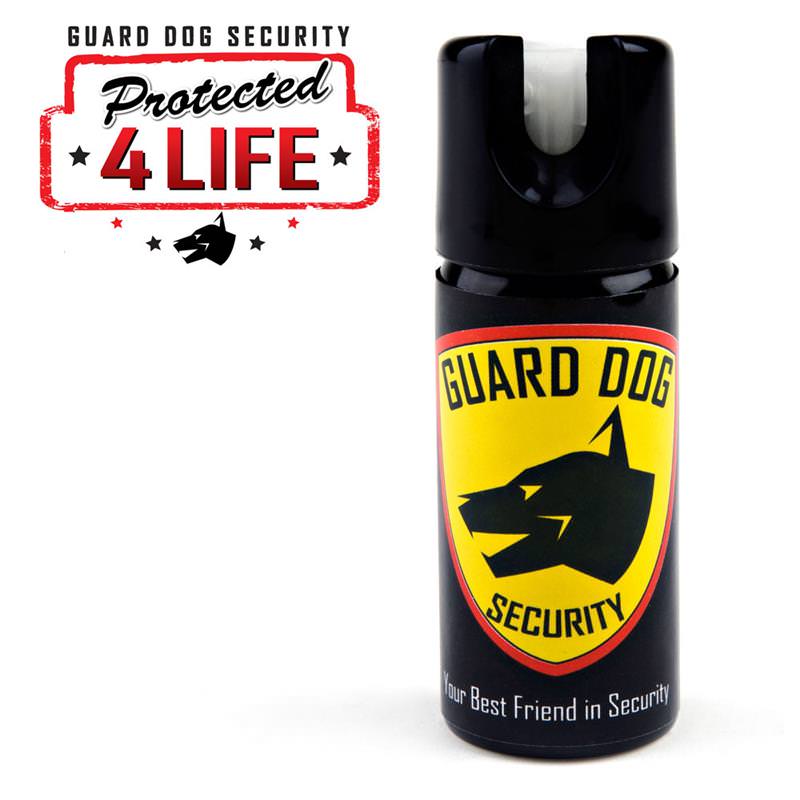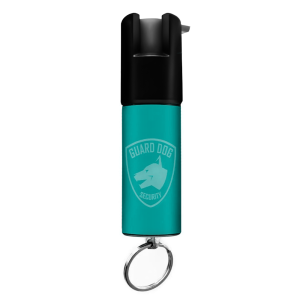The glow in the dark Guard Dog twist top pepper spray contains 18% OC (Oleoresin Capsicum or known as “red pepper”) and invisible UV dye in the quickest release pepper spray on the market. The Guard Dog pepper spray is used with the highest grade formula and laboratory tested for no-leak and optimum efficiency. The convenient, and effective, top allows you to swiftly slide your finger underneath the safety and press for the hottest spray available for consumer use. The glow in the dark top makes locating pepper spray in crucial times extra convenient.
Features:
- Twist top for quick open and prevents accidental discharge
- Contains up to 25 one-second bursts
- The glow in the dark top makes locating pepper spray in crucial times extra convenient.
Active Ingredients & Their Purpose:
- 18% Oleoresin Capsicum (Red Pepper) , The primary ingredient which causes the burn factor from the spray
- Invisible UV Dye , After spraying, this causes an invisible dye on the assailants which enables law enforcement to successfully identify the victim in the case the victim attempts to wash off the substance.
- New & Exclusive! Guard Dog Protected 4 Life Program , Receive FREE pepper spray for life with purchase of this product from online or any Guard Dog authorized retailer. Free pepper spray replacement for life in the event of use.









Reviews
There are no reviews yet.